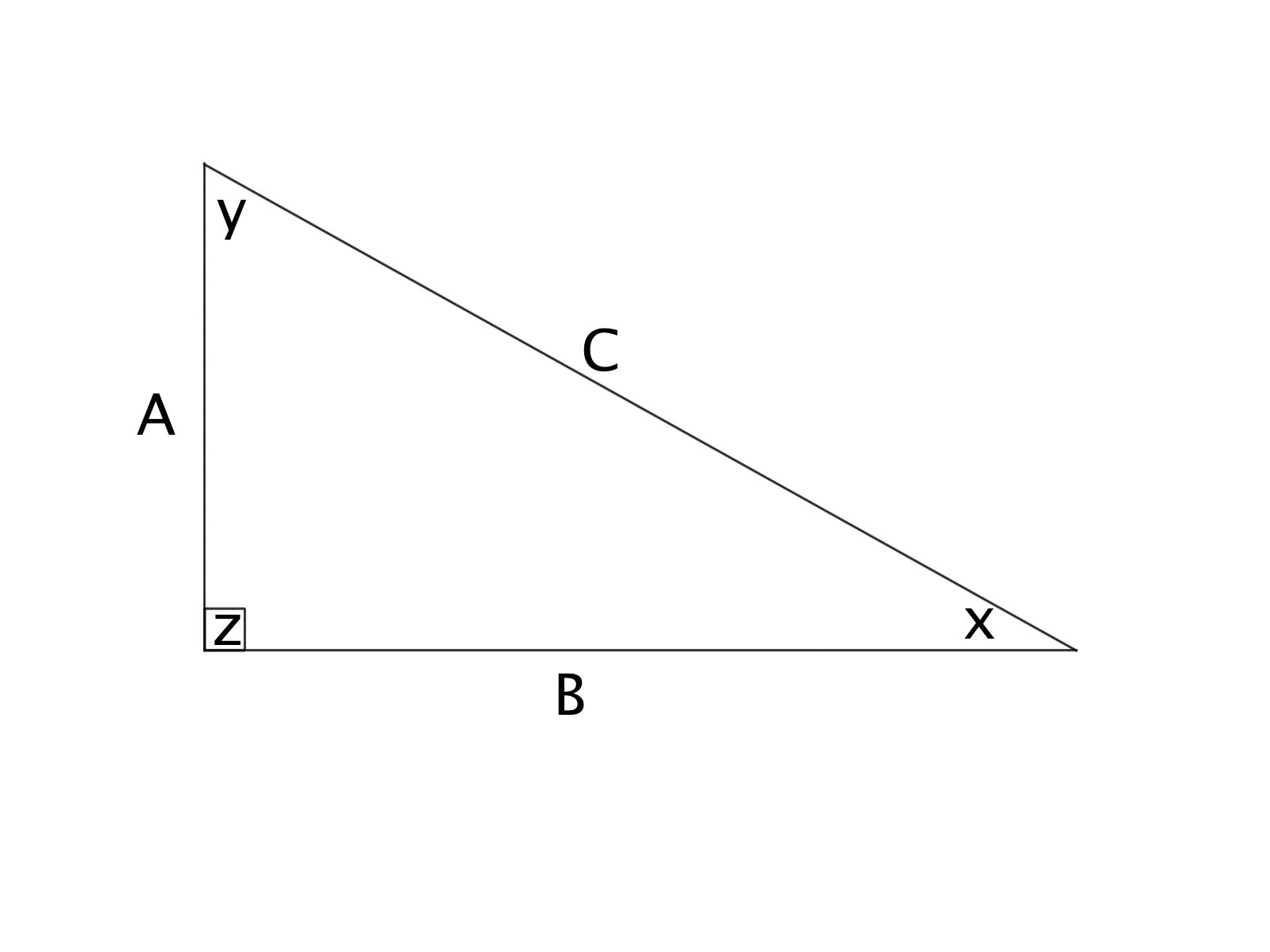All Common Core: 8th Grade Math Resources
Example Questions
Example Question #101 : Geometry
If a right triangle has a base of 

To solve this problem, we must utilize the Pythagorean Theorom, which states that:
We know that the base is 





Next we evaluate the exponents:
Now we add them together:
Then, 


Example Question #1 : How To Find The Length Of The Hypotenuse Of A Right Triangle : Pythagorean Theorem
If a right triangle has a base of 

To solve this problem, we are going to use the Pythagorean Theorom, which states that 
We know that this particular right triangle has a base of 



Next, we evaluate the expoenents:
Then, 
To solve for 


Example Question #2 : How To Find The Length Of The Hypotenuse Of A Right Triangle : Pythagorean Theorem
What is the hypotenuse of a right triangle with sides 5 and 8?
undefined
According to the Pythagorean Theorem, the equation for the hypotenuse of a right triangle is 



Example Question #3 : How To Find The Length Of The Hypotenuse Of A Right Triangle : Pythagorean Theorem
In a right triangle, two sides have length 

By the Pythagorean Theorem, the square of the hypotenuse is equal to the sum of the squares of the other two sides.
Let 

Example Question #1 : Apply The Pythagorean Theorem To Determine Unknown Side Lengths In Right Triangles: Ccss.Math.Content.8.G.B.7
In a right triangle, two sides have lengths 5 centimeters and 12 centimeters. Give the length of the hypotenuse.
This triangle has two angles of 45 and 90 degrees, so the third angle must measure 45 degrees; this is therefore an isosceles right triangle.
By the Pythagorean Theorem, the square of the hypotenuse is equal to the sum of the squares of the other two sides.
Let 


Example Question #1 : How To Find The Length Of The Hypotenuse Of A Right Triangle : Pythagorean Theorem
In a right triangle, the legs are 7 feet long and 12 feet long. How long is the hypotenuse?
The pythagorean theory should be used to solve this problem.
Example Question #101 : Geometry
The legs of a right triangle are equal to 4 and 5. What is the length of the hypotenuse?
If the legs of a right triangle are 4 and 5, to find the hypotenuse, the following equation must be used to find the hypotenuse, in which c is equal to the hypotenuse:
Example Question #63 : Plane Geometry

Triangle ABC is a right triangle. If the length of side A = 3 inches and C = 5 inches, what is the length of side B?
1 inches
4 inches
1/2 inches
6 inches
4.5 inches
4 inches
Using the Pythagorean Theorem, we know that 
This gives:
Subtracting 9 from both sides of the equation gives:


Example Question #421 : Grade 8
An 8-foot-tall tree is perpendicular to the ground and casts a 6-foot shadow. What is the distance, to the nearest foot, from the top of the tree to the end of the shadow?
In order to find the distance from the top of the tree to the end of the shadow, draw a right triangle with the height(tree) labeled as 8 and base(shadow) labeled as 6:

From this diagram, you can see that the distance being asked for is the hypotenuse. From here, you can either use the Pythagorean Theorem:

or you can notice that this is simililar to a 3-4-5 triangle. Since the lengths are just increased by a factor of 2, the hypotenuse that is normally 5 would be 10.
Example Question #436 : Geometry

Find the perimeter of the polygon.
Divide the shape into a rectangle and a right triangle as indicated below.

Find the hypotenuse of the right triangle with the Pythagorean Theorem, 



This is our missing length.
Now add the sides of the polygon together to find the perimeter:
All Common Core: 8th Grade Math Resources




















































































